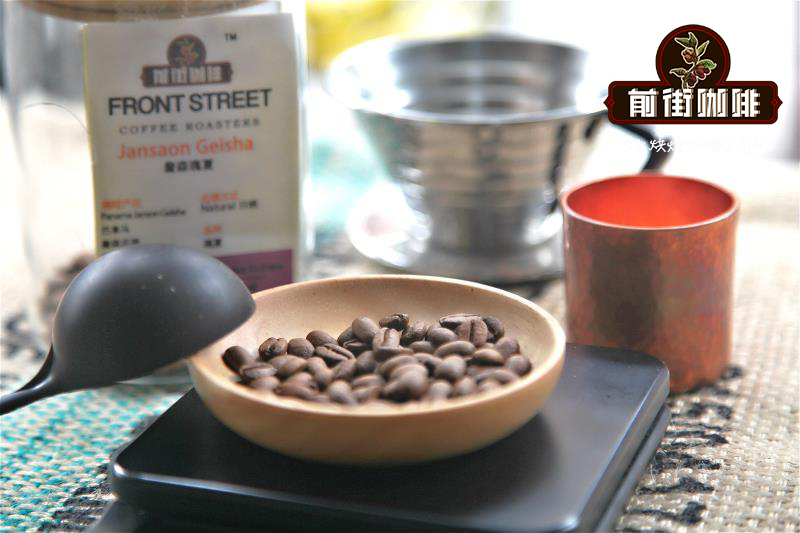Kenya AA EMBU Embukoini washing Plant Kiini factory Kenyan Coffee flavour introduction

Professional coffee knowledge exchange more coffee bean information please follow the coffee workshop (Wechat official account cafe_style)
Kenya AA Embu Kiini
Country of production: Kenya Kenya
Producing area: Kerulli Kairuri; Embu Embu
Cooperative: central Ngandoli Farmers' Cooperative (Central Ngandori F.C.S.)
Washing plant: Koini washing plant Kiini
Altitude: 1700 m
Bean seed: SL28, SL34
Soil: red volcanic soil
Treatment: washing Washed
Harvest time: 2017
Grade: AA micro-batch
Flavor: blueberry, sweet, round taste
Kiini, Embu Embu Koini washing Plant, Kenya
In the past two years, more and more Kenyan beans have come from Enbu. Although they are not as famous as Neri or Kirin Yajia, there are still very good coffee. There are about 38000 small coffee farmers in this area, accounting for 85% of all coffee production. The rest comes from large farms.
The Coini Water washing Plant (The Kiini factory) belongs to the "Central Ngandoli Farmers' Cooperative" (Central Ngandori Farmers Cooperative Society; F.C.S.), located in Kairuri, Embu County, 15 kilometers away from the town of Embu, and there are two washing plants in the Central Ngandoli Cooperative, namely Mwiria and Kairuri. The cooperative has a total of 3000 peasant members.
Farmers around the washing plant deliver cherries to Koini in the evening. The factory calculates the weight and writes down the quantity and quality. The water used by the washing plant comes from clean streams nearby. There is plenty of rainfall, and the average annual 1200mm. Located in the southeast foothills of Mount Kenya, the soil is a deep, mineral-rich and fertile volcanic soil. In addition to coffee, farmers grow other crops including passion fruit, bananas, kale, carrots and tea.
Farmers will receive the full amount after the beans are auctioned off in a competitive bid later that week. Since the washing plant had to pay a lot of cash to each farmer at that time, it usually required partial financing first. Similarly, through the cooperative, coffee farmers can also get part of the loan to pay for their children's tuition and buy what the farm needs. With the assistance of the Government of Kenya Coffee Management Services (CMS), farmers have the opportunity to receive farming training to increase productivity, improve quality and learn sustainable farming methods.
The main coffee varieties grown by farmers near Koini are SL28 and SL34, with a small amount of sharp 11 (Ruiru 11) and Batian. This coffee is made of SL28, SL34 and the highest grade AA. Roasted by Oden, this coffee has a classic Kenyan berry flavor and a thick, round taste.
Important Notice :
前街咖啡 FrontStreet Coffee has moved to new addredd:
FrontStreet Coffee Address: 315,Donghua East Road,GuangZhou
Tel:020 38364473
- Prev

Introduction to the Flavor characteristics of Kenyan Coffee in Kenya AA Top Strange treatment Plant
Professional coffee knowledge exchange more coffee bean information please follow the coffee workshop (Wechat official account cafe_style) Kenya AA TOP Kirinyaga Kii Kenya AA Top exotic processing factory boutique coffee raw beans Coffee Review 94 (July 2014) Sweet Marias AB grade hot sale (US $6.50 per pound, equivalent to 430/KG, not including import freight, tax, import
- Next

Introduction to Kenyan Coffee Flavor characteristics of Kenya AB Kirin Yajia Longyedo Cooperative
Professional coffee knowledge exchange more coffee bean information please follow the coffee workshop (Wechat official account cafe_style) Kenya AB Kirinyaga Rungeto washed Kenya AB Kirin Yajia Longyado Cooperative washing Kenya AB Kirinyaga Rungeto washed production country: Kenya Kenya bean seed: SL34, K7, SL28 Origin: Kirin Asia Kiri
Related
- Detailed explanation of Jadeite planting Land in Panamanian Jadeite Manor introduction to the grading system of Jadeite competitive bidding, Red bid, Green bid and Rose Summer
- Story of Coffee planting in Brenka region of Costa Rica Stonehenge Manor anaerobic heavy honey treatment of flavor mouth
- What's on the barrel of Blue Mountain Coffee beans?
- Can American coffee also pull flowers? How to use hot American style to pull out a good-looking pattern?
- Can you make a cold extract with coffee beans? What is the right proportion for cold-extracted coffee formula?
- Indonesian PWN Gold Mandrine Coffee Origin Features Flavor How to Chong? Mandolin coffee is American.
- A brief introduction to the flavor characteristics of Brazilian yellow bourbon coffee beans
- What is the effect of different water quality on the flavor of cold-extracted coffee? What kind of water is best for brewing coffee?
- Why do you think of Rose Summer whenever you mention Panamanian coffee?
- Introduction to the characteristics of authentic blue mountain coffee bean producing areas? What is the CIB Coffee Authority in Jamaica?

